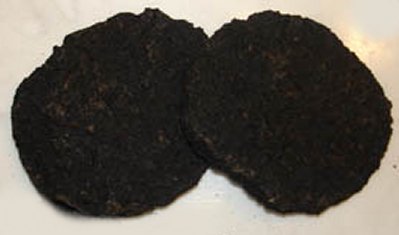Shu Di Huang

  | Shu Di Huang in TCM:Explore the properties of Shu Di Huang according to Chinese
Nutrition and Traditional Chinese Medicine (TCM):
Factoids:
English Name: cooked rehmannia, prepared adhesive rehmannia
Pharmacuetical Name: Radix Rehmanniae Preparata
Properties: sweet, slightly warm
Temperature: warm
Channels: KD, LV
Flavors: sweet
Tonifies: blood, yin
Special Properties:
essence
Alternate Forms:
- Xian Di Huang (fresh, not dried)
- more bitter than sweet, very cold compared to sheng di; xian di is
also stronger to clear heat, cool blood, and generate fluid, weaker
to nourish yin, and less stagnating: 20-60g, or grind for juice)
- (aka: Gan di Huang, di Huang, Gan Sheng)
Actions / Indications:
- Nourishes Blood (pallid complexion, dizziness, palpitations,
insomnia, irregular menses, uterine of postpartum bleeding)
- Nourishes Yin and Essence(night sweats, nocturnal
emissions, steaming bone disorder, wasting and thirsting, low back pain,
weakness of lower extremities, lightheadedness, dizziness, tinnitus,
diminished aural acuity, and premature grey hair)
- (cc: cloying and sticky which makes for difficult digestion, caution
with SP and ST deficiency)
- (cc: qi stagnation and phlegm dampness)
- (cc: overuse may cause abdominal distension, loose stool)
- (note: shu di is prepared by mixing sheng di with yellow wine and
steaming until moist and black... compare with sheng
di huang)
Special Notes:
- Compare Shu di Huang, Sheng di Huang,
and Xian Di Huang (above). Xian di HUang is weaker to nourish
yin, but stronger to clear heat and cool blood. Sheng di Huang, the
dry unprocessed root, is most effective to treat heat in the blood injuring
body fluids. Shu di Huang, the processed root, has the strongest tonifying
action of the three, and is best to alleviate jing (essence), blood,
and yin deficiency.
Disclaimer: In accordance with our terms of service, by using this web site you agree that none of the information found on this web site constitutes medical advice. You should always consult your doctor before trying any particular food or herbal remedy to treat disease.
Folk remedies presented on this site are designed to address specifc TCM diagnoses, and are not one-size-fits-all. If you would like to learn more about Traditional Chinese Medicine (TCM) and how it relates to Chinese Nutrition, you can book in a free call with a licensed professional. There is no obligation to purchase.
[CLICK HERE for your free INITIAL CONSULTATION] |

